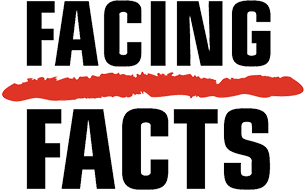Facing Facts Network at the European Parliament
14/07/2023
European hate crime and hate speech response systems
Author: Annabelle Betz
On 6 July, CEJI’s Executive Director Robin Sclafani opened the Facing Facts Network hearing hosted by MEP Pierrette Herzberger-Fofana at the European Parliament, highlighting the goal of bringing different stakeholders together to address hate crime and hate speech in a systems mapping approach.
European institutions, civil society organisations and public authorities joined forces to share best practices and address challenges and gaps in collaboration. Key speakers at the hearing included representatives from the Spanish Presidency, the European Commission, the European Parliament and its Anti-Racism and Diversity Intergroup (ARDI), as well as Facing Facts Network members from Spain: the Spanish Observatory on Racism and Xenophobia (OBERAXE) and Fundación Secretariado Gitano (FSG). The hearing was moderated by Facing Facts Network Director Melissa Sonnino.

Several stakeholders discuss in the European Parliament how to tackle hate crime and hate speech. Photo: Erin Macpherson.
Victoria Hernández Esguevillas, from the Spanish Presidency, announced the objectives of the Spanish Presidency and shared the date for the upcoming working group on combating hate speech and hate crime, scheduled on 6 and 7 October in Madrid.
Sonia Jimenez Rubio, representing OBERAXE, which has the status of “trusted flagger”, emphasised the importance of monitoring hate speech consistently, currently based on the methodology of the Code of Conduct. OBERAXE stressed the need for institutional cooperation in combating racism, xenophobia, and other forms of intolerance by sharing monitoring tools and resources with civil society.
Javier Sáez, from FSG, working on promoting the rights of Roma communities and fighting antigypsyism, reiterated the need for interinstitutional cooperation. Sáez highlighted the relevance of training law enforcement and prosecutors to recognise bias indicators, as underreporting and underrecording of hate crimes are one of the many challenges that victims, communities and society face. The organisation looked back at its keys of successes in including antigypsyism in the Spanish penal code as an aggravating factor, but expressed concern over current challenges that include the slowness of the judicial process, the complexity and expenses of judical processes, as well as the limited knowledge on antigypsyism of authorities in investigating and applying sentences with the aggravating circumstance.
Tommaso Chiamparino, from the European Commission, shared insights on the Digital Services Act (DSA), a legislation approved by the European Parliament in 2022, to counter illegal hate speech and regulate IT companies in being more transparent and removing illegal content online. Chiamparino emphasised the importance of multi-stakeholder cooperation and ensuring resources for civil society organisations due to their expertise in monitoring online hate.
“As public authorities we all need to take responsibility to have adequate means to address the needs of civil society organisations.” – Tommaso Chiamparino, European Commission.
Jelena Jovanovic, from ARDI, stressed the role of the European Parliament in addressing hate crime and hate speech and highlighted ongoing efforts to include hate crime in the list of EU crimes, as initiated by the European Commission in 2021. Jovanovic also mentioned the need to combat intersectional discrimination.

From left to right: Javier Sáez, Robin Sclafani, Pierrette Herzberger-Fofana, Tommaso Chiamparino. Photo: Erin Macpherson.
MEP Pierrette Herzberger-Fofana addressed hate speech targeting people based on their sexual orientation and gender identities. She emphasised the need for a victim-focused approach and mentioned the forthcoming implementation of an internal parliament policy to tackle hate speech happening from within the European Parliament. Herzberger-Fofana also discussed the current situation of racist systemic structures and police violence in France and urged European leaders and society to take action.
“It saddens me to see what is happening in France these days. We have a George Floyd situation in France and the response of the EU is nowhere. Nahel, 17 years old, is dead after a police officer shot him. This is not an isolated case. The governement needs to start acknowledging and address racism within police. It is high time for Europe to admit that it is not doing good”.
The hearing provided an opportunity for stakeholders to come together and discuss strategies to combat hate crime and hate speech. The issues raised highlighted the need for cooperation, the recognition of bias indicators by law enforcement, and the allocation of financial resources to civil society organisations to effectively address these challenges.


 Facing Facts is co-funded by the Citizens, Equality, Rights and Values Programme
Facing Facts is co-funded by the Citizens, Equality, Rights and Values Programme